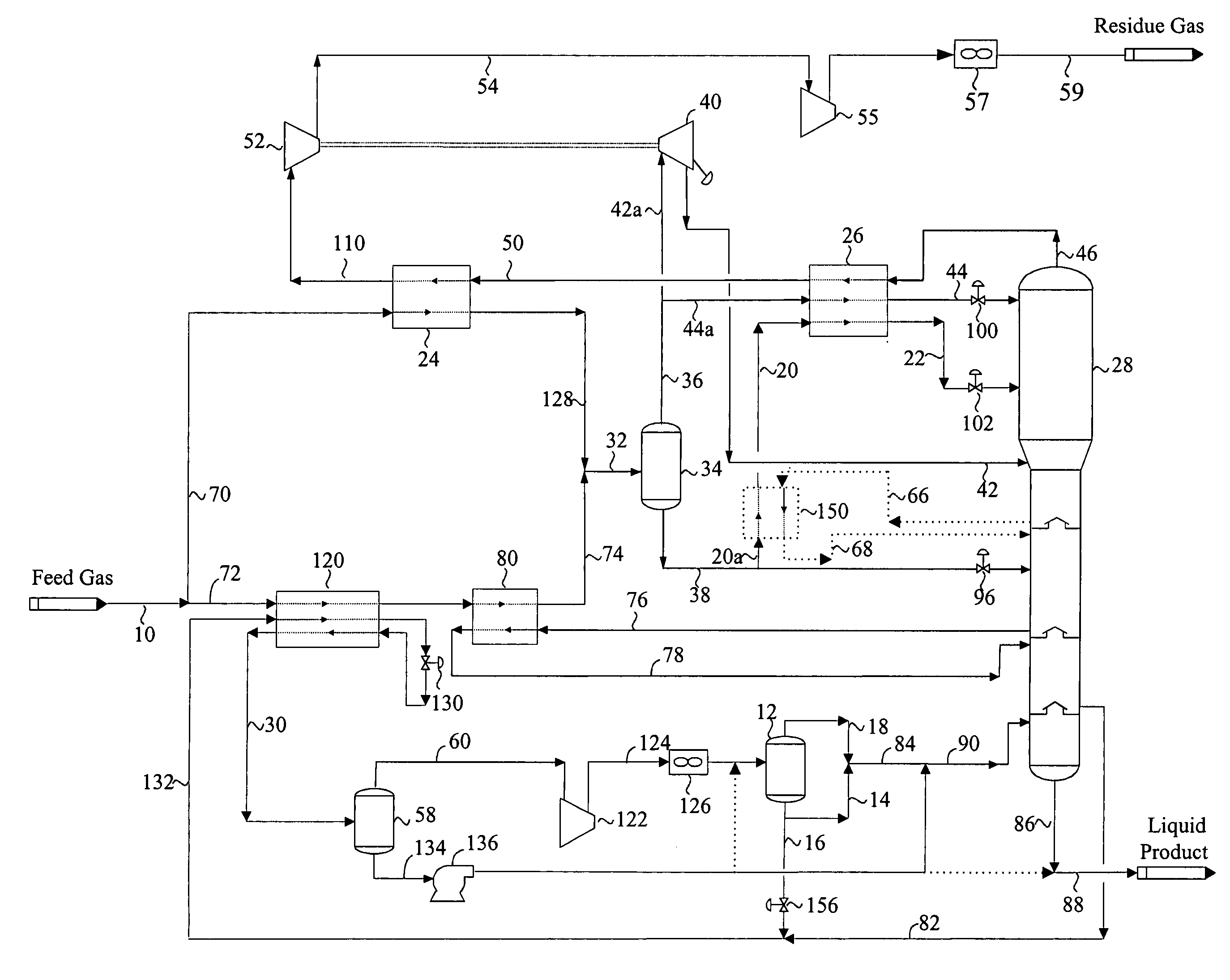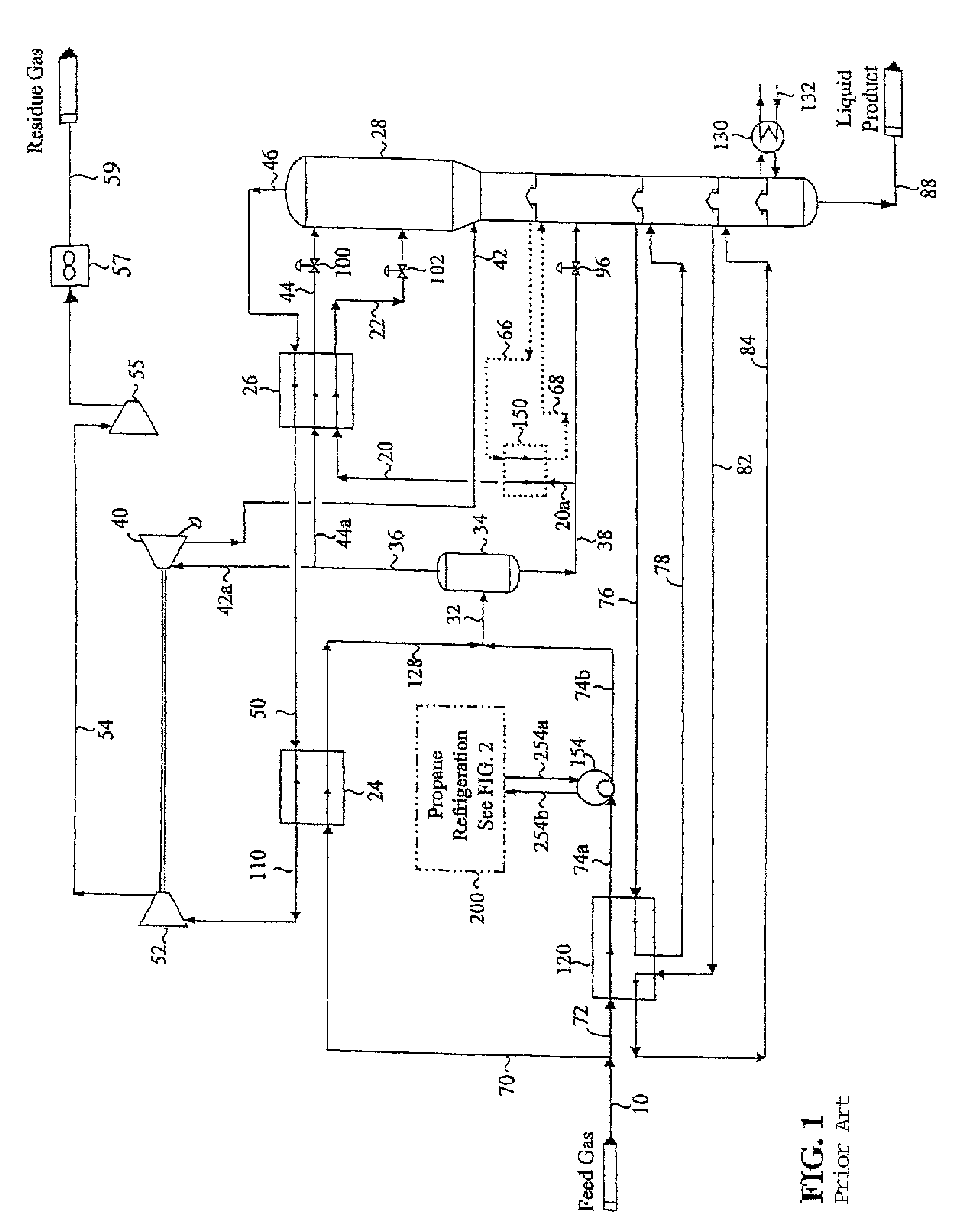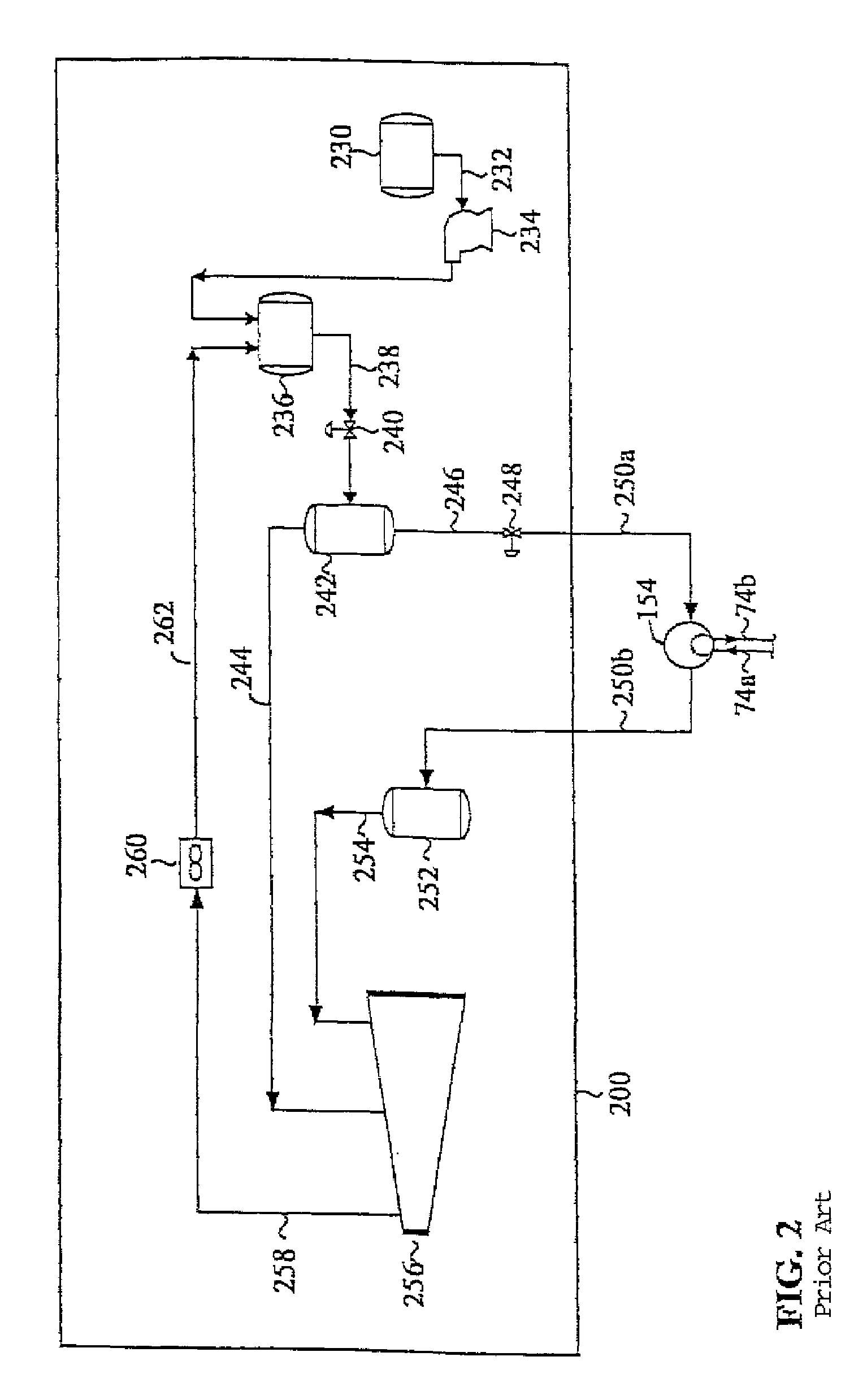Internal refrigeration for enhanced NGL recovery
a technology of ngl recovery and internal refrigeration, which is applied in the direction of refrigeration, liquid storage, lighting and heating equipment, etc., can solve the problems of reducing the recovery level of hydrocarbons, most processes fail to maintain the same propane recovery level, and the process becomes less economical, so as to improve separation efficiency and ngl recovery, and enhance the relative volatility of key components
- Summary
- Abstract
- Description
- Claims
- Application Information
AI Technical Summary
Benefits of technology
Problems solved by technology
Method used
Image
Examples
Embodiment Construction
[0035]The present invention broadens the application of '175 patent to overcome the aforementioned shortcomings. By introducing a self-refrigeration system consisting of both open and closed cycles, the external refrigeration requirement, electrical load and utility cost may be significantly reduced. Because of these improvements, the capital requirements and operating cost of recovering NGL present in the feed gas may be greatly reduced.
[0036]For the purpose of comparison, an exemplary prior art process will be described with reference to FIG. 1 and FIG. 2. The methods of the present invention will be described with reference to FIG. 3, FIG. 8, and FIG. 9. To the extent that temperatures and pressures as well as other process parameters are recited in connection with the methods of the present invention, those conditions are merely illustrative and are not meant to limit the invention.
[0037]Referring to FIG. 1, a feed gas comprising a pretreated and clean natural gas or refinery ga...
PUM
 Login to View More
Login to View More Abstract
Description
Claims
Application Information
 Login to View More
Login to View More - R&D
- Intellectual Property
- Life Sciences
- Materials
- Tech Scout
- Unparalleled Data Quality
- Higher Quality Content
- 60% Fewer Hallucinations
Browse by: Latest US Patents, China's latest patents, Technical Efficacy Thesaurus, Application Domain, Technology Topic, Popular Technical Reports.
© 2025 PatSnap. All rights reserved.Legal|Privacy policy|Modern Slavery Act Transparency Statement|Sitemap|About US| Contact US: help@patsnap.com



